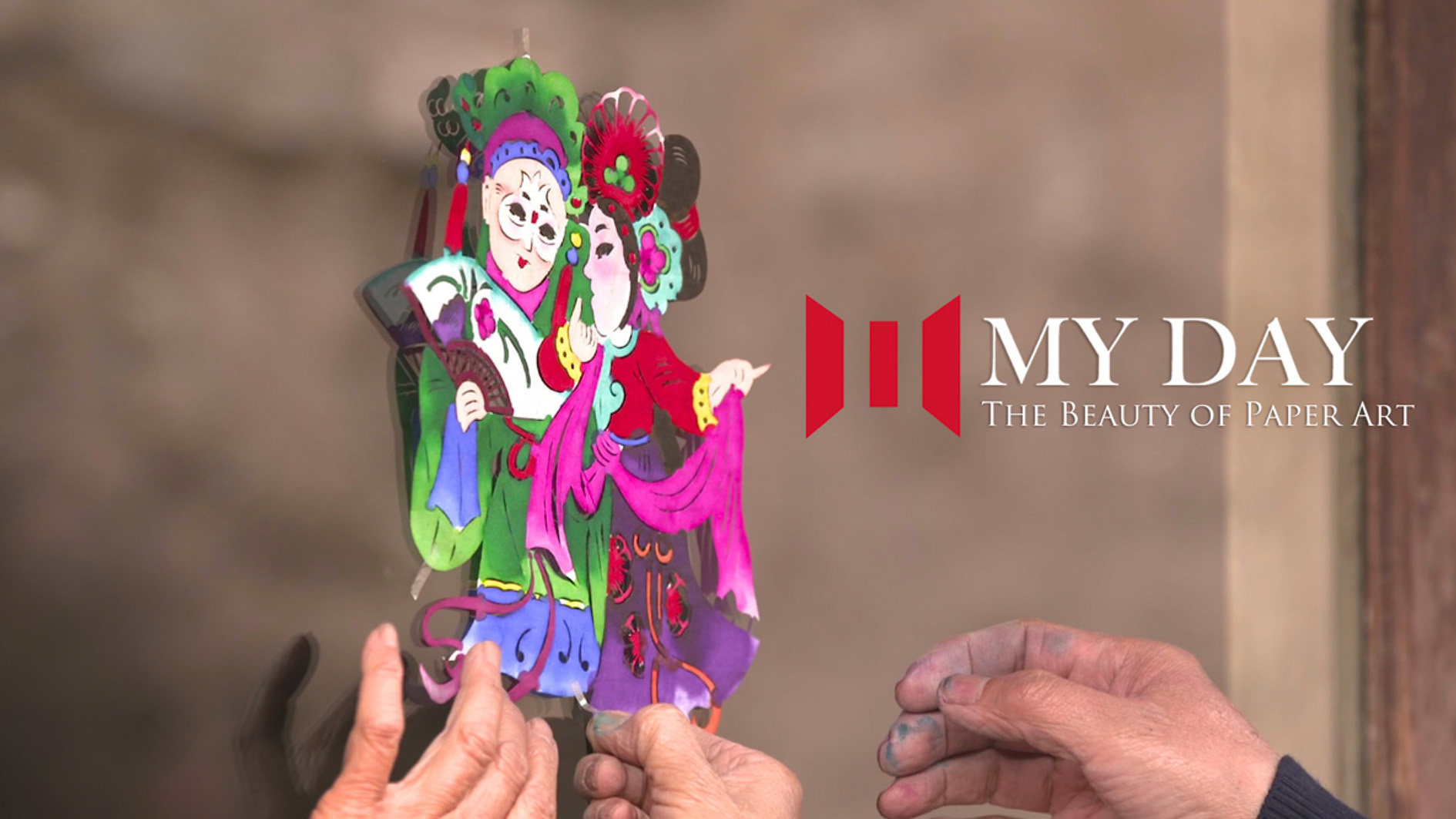
Domestic
16:46, 12-May-2019
In north China: The beauty of paper art
By Wang Xiaonan
05:07

Vivid patterns, gorgeous colors, exquisite shapes – you can find all these elements in China's traditional papercutting art.
Yuxian papercutting stands out as the most prestigious paper art of the Middle Kingdom. It has gone through a history of over 200 years, dating back to the reign of the Daoguang Emperor of the Qing Dynasty (1644–1912), but Yuxian craftsmen have passed down the art form with their original take while retaining its traditional essence.
Looking plain and unadorned, a paper design is produced over a complicated process – pattern design, sketching, knife carving, paper blotting, and dying with colors. Each step is infused with traditional techniques along with the individual creativity of the craftsman.
Instead of using scissors to cut the paper, the craftsman uses a special knife. The most time-consuming and complicated part is making a sharp, thin knife that can precisely slice the paper. “You have to make the knife by yourself because you cannot get this kind of knife on the market,” said Zhao Quan, a 68-year-old local craftsman in Yuxian County. He sharpens his knife from time to time.
With refined skills, wild imagination and decades of dedication, Zhao and his fellow colleagues' paper designs, including graphic images and three-dimensional designs, can go well beyond your imagination.
Chinese papercutting is a folk art that belongs to the common people, who partake in it as a humble pastime or a way to support their families. The subjects of the art form are all-embracing, ranging from opera characters and legendary figures to tourist attractions and even farm animals such as chicken. People pin their hopes on these papercut designs when praying for rain, a bumper harvest season, or an auspicious year.
The Yuxian papercutting art was listed as a national intangible cultural heritage in 2006.

SITEMAP
Copyright © 2018 CGTN. Beijing ICP prepared NO.16065310-3
Copyright © 2018 CGTN. Beijing ICP prepared NO.16065310-3